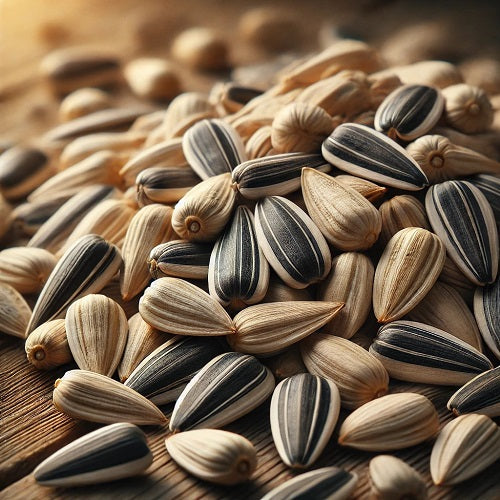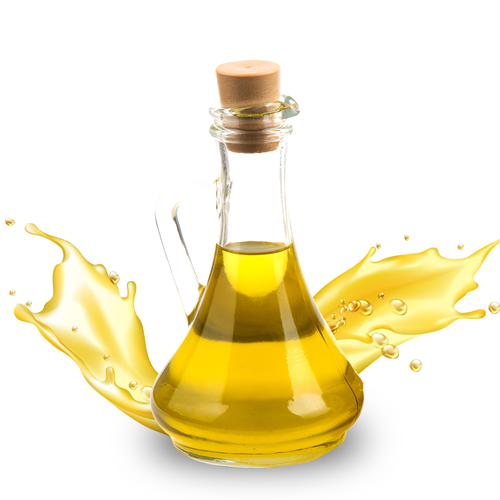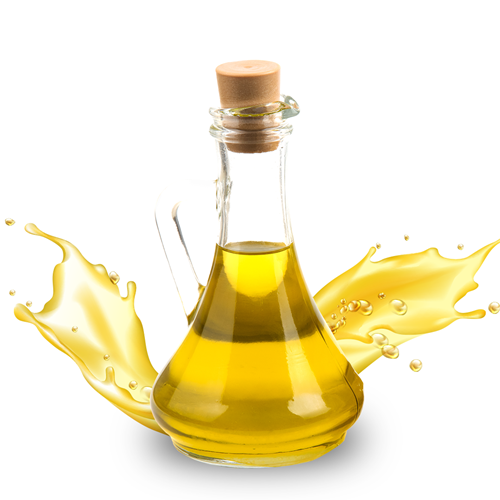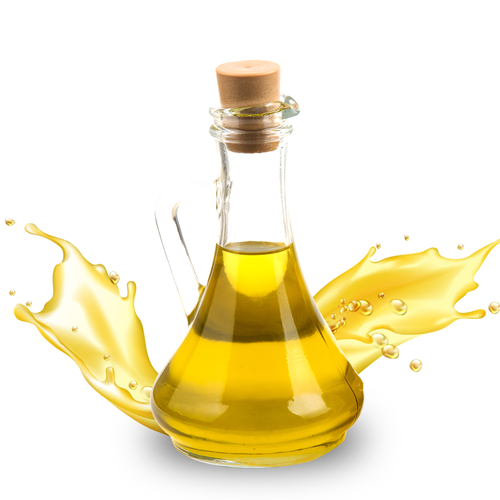Menu
Add description, images, menus and links to your mega menu
A column with no settings can be used as a spacer
Link to your collections, sales and even external links
Add up to five columns
Add description, images, menus and links to your mega menu
A column with no settings can be used as a spacer
Link to your collections, sales and even external links
Add up to five columns
LOOKING FOR BULK INGREDIENTS PRICING?

Benefits of Sunflower Seeds - Wholesale B2B Bulk Suppliers in Europe
Sunflower Seeds: A Crunchy Superfood Packed with Nutrition & Wellness
Sunflower Seeds, harvested from the vibrant flower heads of the Helianthus annuus plant, are more than just a tasty snack. These small, grayish-black seeds have gained popularity worldwide for their dense nutritional profile and numerous health benefits. Whether eaten raw, roasted, or as part of health bars, cereals, and salads, sunflower seeds are a crunchy, satisfying way to boost your daily nutrient intake.
Botanical Profile
-
Botanical Name: Helianthus annuus
-
Family: Asteraceae
-
Plant Part Used: Seeds (Kernels)
-
Color: Gray to black with or without stripes; kernels are white to off-white
-
Taste: Nutty, mildly sweet, and crunchy
-
Common Names: Sunflower Seeds, Surajmukhi Ke Beej
Nutritional & Health Benefits of Sunflower Seeds
-
Rich Source of Healthy Fats
Sunflower seeds are high in heart-healthy unsaturated fats, especially linoleic acid. These fats support cardiovascular health by lowering LDL (bad) cholesterol and increasing HDL (good) cholesterol levels. -
Loaded with Vitamin E
A single serving of sunflower seeds provides over 35% of the daily recommended intake of Vitamin E—a powerful antioxidant that protects cells from damage and supports skin and eye health. -
High in Protein
These seeds contain a good amount of plant-based protein, which aids in muscle building, tissue repair, and satiety, making them ideal for vegetarians and fitness enthusiasts. -
Supports Heart Health
Along with healthy fats, sunflower seeds are rich in magnesium and phytosterols, both known for their ability to support heart function and reduce blood pressure. -
Improves Brain and Mood Function
Thanks to magnesium and Vitamin B6, sunflower seeds help regulate mood, reduce anxiety, and support neurotransmitter function. -
Enhances Skin and Hair Health
The combination of Vitamin E, selenium, zinc, and essential fatty acids contributes to glowing skin, stronger hair, and reduced signs of aging. -
Boosts Immunity
Sunflower seeds contain zinc and selenium, which play vital roles in supporting a strong immune system and protecting against infections.
Common Culinary Uses
-
Eaten raw or roasted as a snack
-
Added to granola, trail mixes, and cereals
-
Used in baking (breads, muffins, cookies)
-
Sprinkled over salads, yogurt, or smoothie bowls
-
Ground into sunflower seed butter as a peanut butter alternative
How to Use
Sunflower seeds can be consumed with or without shells. Shelled seeds (kernels) are more convenient for recipes, while in-shell seeds make for a satisfying snack. Store them in airtight containers in a cool, dry place to prevent rancidity.
Precautions
While generally safe, sunflower seeds are calorie-dense, so portion control is key. Also, salted varieties can contribute to high sodium intake if consumed excessively. People with seed allergies should avoid them.
Final Thoughts
Sunflower Seeds are nature’s tiny powerhouses, delivering a rich blend of essential nutrients, healthy fats, and antioxidants in every crunchy bite. Whether you're looking to boost heart health, improve skin, or simply enjoy a wholesome snack, sunflower seeds are a smart and delicious choice for daily nutrition.
For bulk orders and inquiries, visit Reveda - Sunflower Seeds
BUY ONLINE IN USA FROM REVEDA - The leading manufacturer B2B Bulk Wholesale Supplier of Sunflower Seeds in Europe.
Also in Reveda: Health & Wellness

Benifits Of Omega-3 Fish Oil EE - 460 MG/G EPA & 180 MG/G DHA - Wholesale B2B Bulk Suppliers in USA
Read More
SUBSCRIBE NOW ...
Don't miss to get latest updates on sales, new releases and promotions

